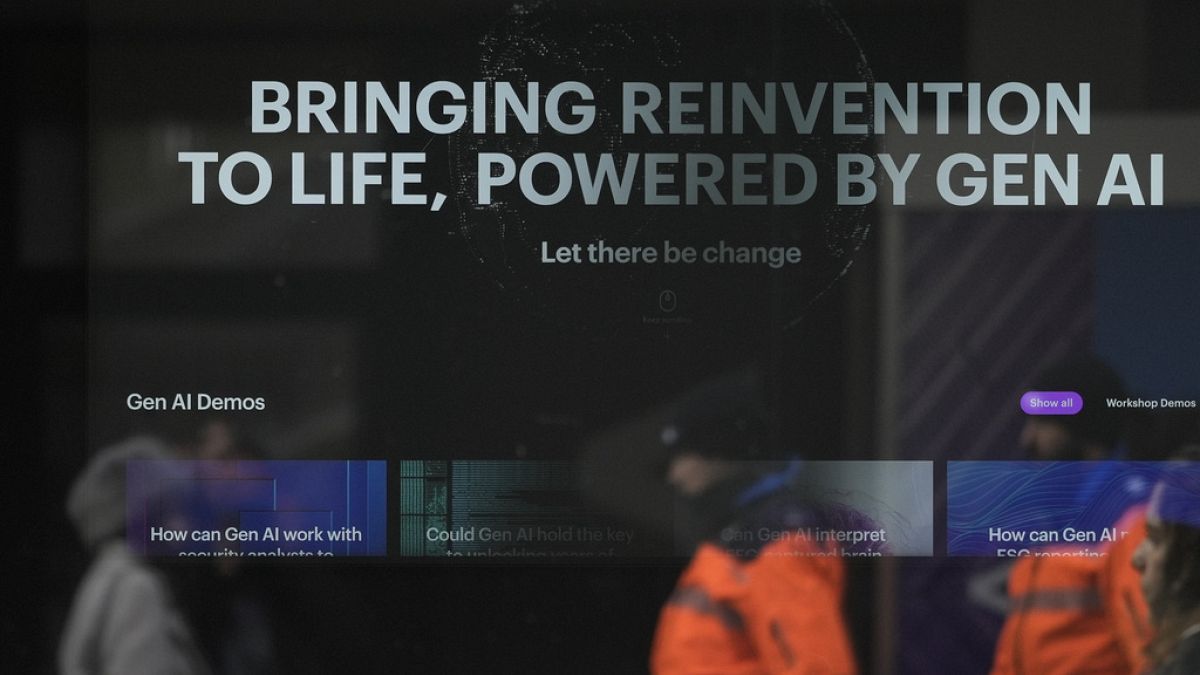People who can find a way to complement AI with their unique human skills and traits may have an edge over people who steer clear of AI altogether, according to NYU professor Arun Sundararanjan.
Sundararajan, who teaches entrepreneurship and digital technologies at the Stern School of Business told Euronews Business: "I think people who understand how to take advantage of AI, to complement their humanity, are going to have an easier time than people who try to shy away from AI, because you know that the generative AI at some point has a very high chance of replicating all or part of what you do.
"And so an important first step in figuring out how do I transition to what I'm going to be doing next, is getting good at using the AI so that at least you're educating yourself about, what is it good at doing? How good is that going to be in a couple of years? And what are the niches that I, as a human being, can pursue so that I'm still relevant?"
How can entrepreneurs use AI to complement their human capabilities?
According to Sundararajan, AI can be most useful in situations where it takes up the most routine or time-consuming tasks, such as answering emails, creating presentations, writing endless lines of code and so on.
This leaves entrepreneurs free to handle the more creative or delicate tasks such as ideation. This extends to thinking of new products, finding new target markets, as well as new ways to elevate and revamp existing products.
In this way, by combining the best of both AI and human capabilities, entrepreneurs can offer their customers more efficient and higher quality products, which still have the human touch.
Sundararanjan said: "To me, one of the biggest promises of AI and especially generative AI, is the ability for it to give people capabilities that they don't have, and to create an entirely new generation of micro entrepreneurs who are owning a tiny slice of the economy.
"New healthcare workers, new financial analysts, new educators, new legal aides, new creatives, all of whom may have the motivation and the ideas, but not the technical or creative skills or some of the know-how to be able to translate that entrepreneurial vision into reality."
He also highlights that, in several cases, even people who don't intend to be entrepreneurs can be drawn into it because of all the opportunities offered by generative AI.
Similarly, in the field of education, entrepreneurs as well as educators can use AI to deliver high-quality education to disadvantaged communities or less developed countries who may not always have the same opportunities.
Boundaries between AI and human capital vital
No matter how many advances AI could help bring about in workplaces, however, there still needs to be a boundary between technology and human capital, in order to encourage entrepreneurship, as well as protect jobs.
Referring to some of the dangers of companies using AI in work processes, Sundararajan said: "I think a lot of companies are going to personalise AI for their best employees, capturing how they do their work, capturing how they write successful business proposals, how they write good marketing content.
"And I think that's where the danger starts to grow for the employee because, if your capabilities start to get replicated in an AI system that may have been developed initially to help you work, what happens when you leave the company?
"Your AI assistant, your digital twin, might stay behind and someone who gets paid half of what you do may end up being almost as productive as you, because they've got your intellectual capital."
In the short term, although AI might help free up some of the employees' workload, it might also discourage high-performing employees from giving their best in a job, for fear of being easily replaced by AI. In this way, they might want to retain some of their human capital, to still be an attractive candidate for their next job.
In the long run, this might lead to several employees being underpaid and greater job losses globally, as AI becomes better at replicating human work.




